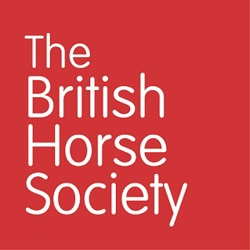Paralympian Natasha Baker MBE and FEI judge Christian Landolt are one of equestrianism’s longest-running rider-owner partnerships and just last week, Natasha has succeeded in scooping Silver in the Grade III Individual Dressage at Tokyo, together with Keystone Dawn Chorus ‘Lottie’, daughter of Dimaggio. Ellie Kelly spoke to one of the closest partnerships in equestrian sport to discover what sort of horse it really takes to win Paralympic medals.
“I think things are changing,” muses Christian. “For London 2012, the emphasis of para dressage was about harmony and correctness, and not about the wow factor. Now, there is a push for bigger, better-moving horses.”
“It’s always a fine line between safety and power,” agrees Natasha. A Grade 3 rider, Natasha has permanent nerve damage, loss of balance and sensation, and severe weakness in her legs after contracting a virus in infancy. She utilises verbal commands and seat movements for her aids. “The biggest challenge at my level is having a horse that is safe and sensible, but still has the sporting excellence and paces to win gold medals. That’s the hardest balance. “When I get a new horse, generally they are used to riders who use their legs as their aids - the voice is not a tool they are used to. When I try a horse, I look to see how quickly they can get used to another way. If I try to make a trot transition, if the horse is trying to work out what I'm asking, I just keep repeating it so they pick it up. I can quickly tell if a horse is open to that: is it a positive reaction? Or is it a shut-down reaction? You can really feel what is going on in their mind.”
Natasha also feels that para horses have a ‘sixth sense’. “They have this nurturing way about them. I think they want to help you and look after you. That’s what makes the RDA ponies so special, as well as the elite horses.”
Christian agrees that temperament is key for para horses at all levels, commenting that the difference between the para sport classifications does mean looking for different types of horses. “A more able-bodied rider can manage hotter, bigger-moving horses better; horses for lower-numbered Grade para riders need to be forward moving, and in some ways sensitive, but with an amazing brain. For me, it is not all about winning medals. It’s about each horse fulfilling its destiny.”
To read the full interview with Natasha and Christian from the September 2021 issue of British Horse magazine, sign up and become a BHS Member today. As well as receiving an annual subscription to British Horse worth £22, members will also gain access to a variety of exclusive benefits, including a generous insurance package, access to a 24/7 legal helpline, and the knowledge your membership helps to fund our charitable aims. Join our equine community by signing up today.
